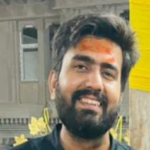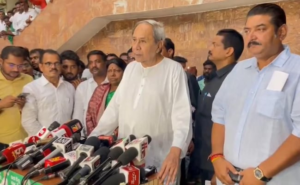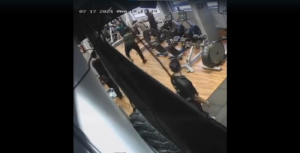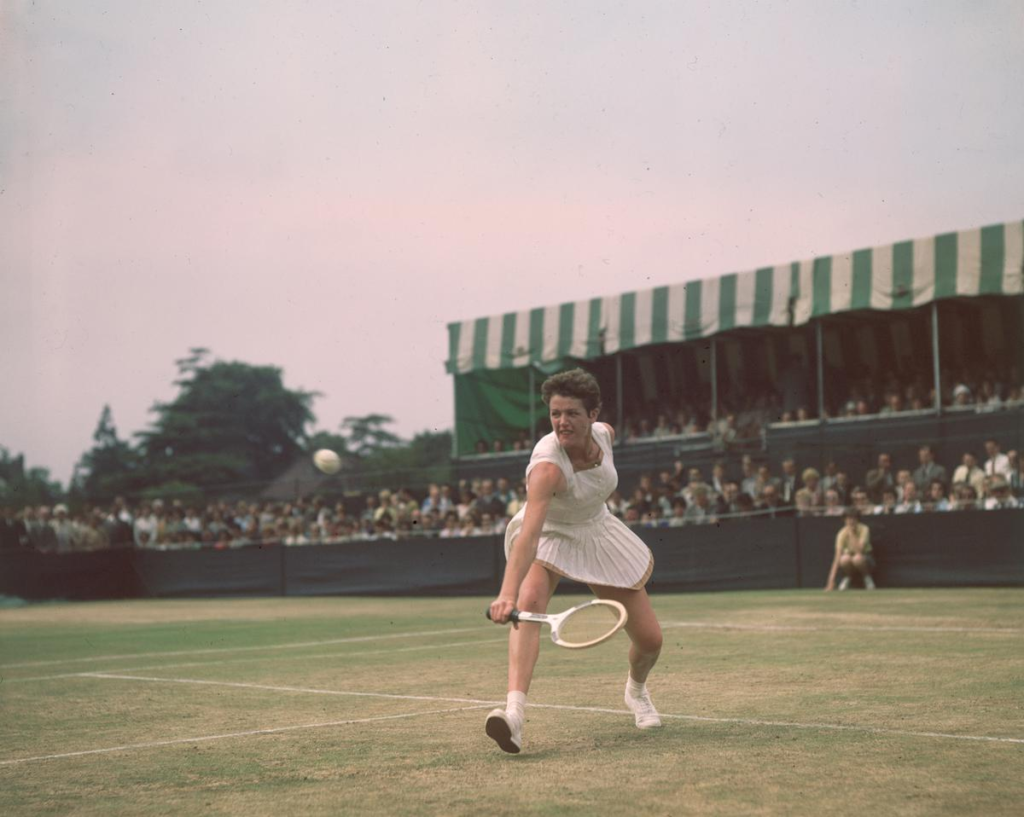
When dealing with the number 24 in Grand Slam tennis’ history books, before Novak Djokovic, there was Margaret Court
ALSO READ: Djokovic lucky to have had rivals like Federer, Nadal, says Ivanisevic
Here’s a closer look at the life of fierce and often controversial figure in global sport
The Australian, whose career flourished alongside the likes of Billie Jean King and Martina Navratilova, was born in 1942 in Albury, New South Wales
Court tops the stat books in tennis – winning more Grand Slams (66) than any other woman in the history of the sport. This included 24 singles titles.
A natural left-hander, Court was coached into switching to her right hand. When she was 18, in 1960, she won the first of seven consecutive single titles at the Australian Open. Two years later, Court also became the first Australian woman to win a Grand Slam tournament abroad when she returned home with triumphs at the French and US Open.
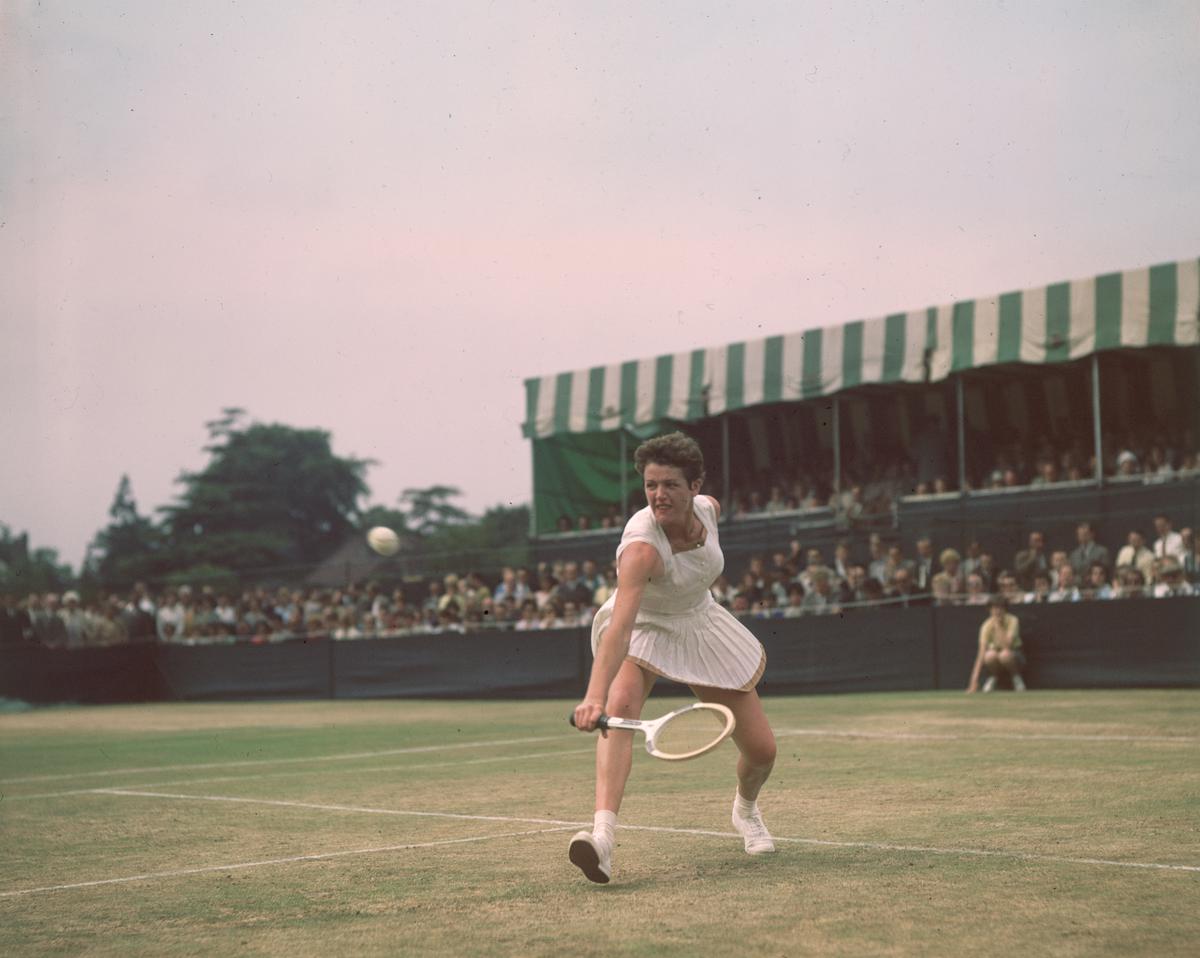
1962: Australian tennis player Margaret Smith on court.
| Photo Credit:
Central Press
1962: Australian tennis player Margaret Smith on court.
| Photo Credit:
Central Press
In 1965, she became the only player in history to win a mixed doubles Grand Slam twice – winning the French Open and Wimbledon with Ken Fletcher, the Australian Open with John Newcombe and the US Open with Fred Stolle. In 1970, she became the first woman in the Open Era (1968-onwards) to win a calendar Grand Slam (all four Majors in a year). She is the second woman overall to do so after Maureen Connolly in 1953.
Court already had two children by then and had her third in 1975. She shares the record for most Major titles by a mother with Belgium’s Kim Clijsters.
WATCH – Djokovic pays tribute to Kobe Bryant after US Open title
Just like Djokovic, the bulk of Court’s Grand Slam titles have come in Australia. She won the Australian Open 11 times, including seven in a row from 1960 to 1966. She also enjoyed success in America, winning the US Open five times in 1962, 1965, 1969, 1970, and 1973. She has five French Open titles to her name, winning in Paris in 1962, 1964, 1969, 1970, and 1973. Wimbledon proved to be the hardest Grand Slam for Court to win, with Court having only three titles here in 1963, 1965, and 1970
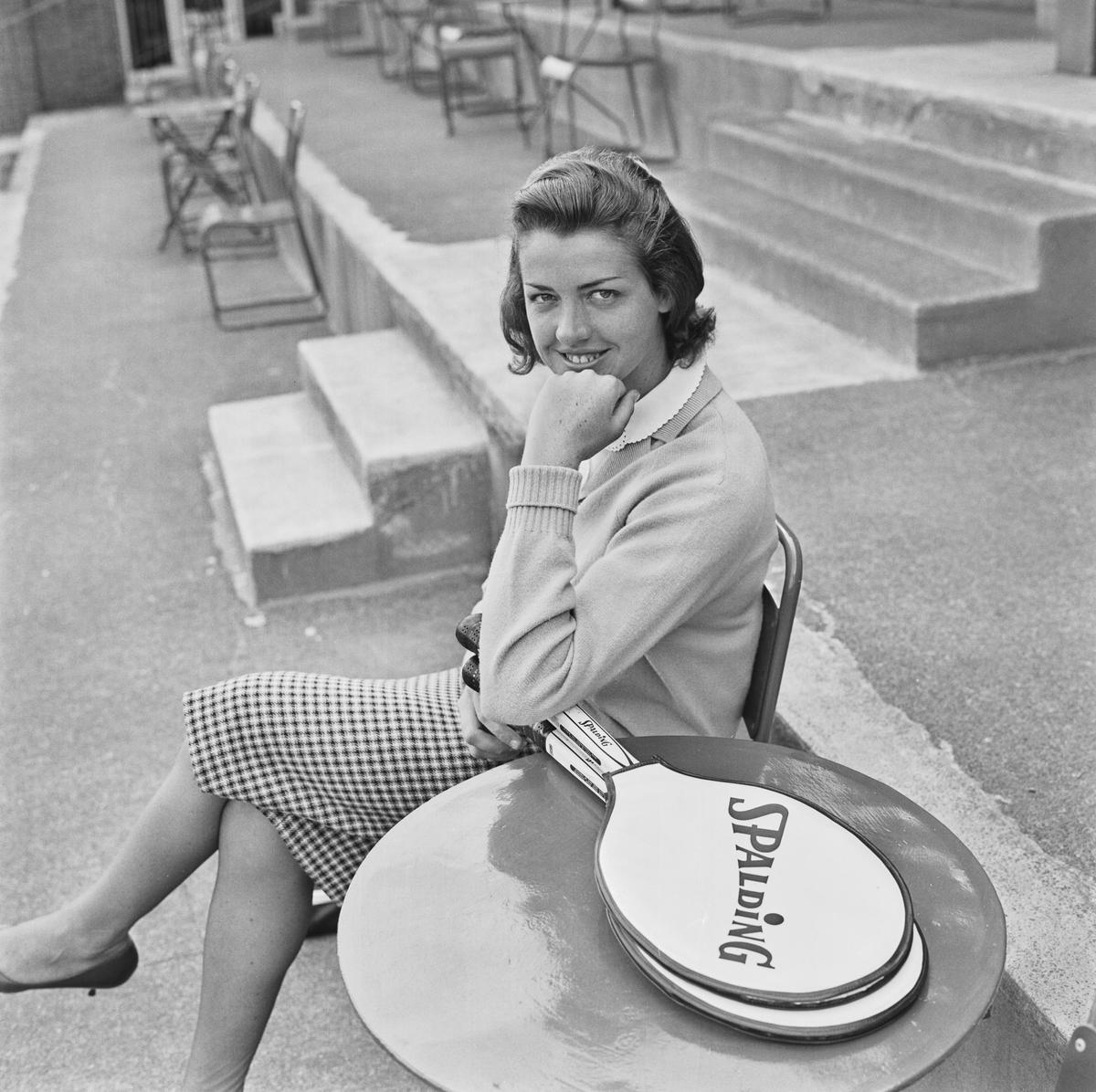
Australian tennis player Margaret Smith (later Court) with a Spalding racket at the Wimbledon Championships in London, UK, 24th June 1963. She went on to win the Women’s Singles that year.
Australian tennis player Margaret Smith (later Court) with a Spalding racket at the Wimbledon Championships in London, UK, 24th June 1963. She went on to win the Women’s Singles that year.
Court is one of only three players in history (all women) to have won the “Boxed Set” – a milestone where a player has won every major title (the singles, doubles and mixed doubles). She is the only player in tennis history to complete a double Boxed Set. Court is also one of only six tennis players to win a double career Grand Slam in two disciplines, matching Roy Emerson, Martina Navratilova, Frank Sedgman, Doris Hart, and Serena Williams
Her aggressive approach was aided by a dogged determination to stay fit. She would do weights and multi-terrain runs to build stamina and endurance and earned the tag – the Aussie Amazon for how fit she was. This helped her stay largely injury free during her illustrious career. The numbers are there for all to see – Court won 62 of the 85 Grand Slam tournament finals (72.9%) she played in.
HONOUR ROLL: Most notable accolades
On 1 January 1967, she was made Member of the Order of the British Empire (MBE), for her services to sport and international relations
Inducted into the International Tennis Hall of Fame and Australian Tennis Hall of Fame
Awarded the Australian Sports Medal for sporting excellence
2003 – In January, Show Court One (at Melbourne Park) was renamed Margaret Court Arena.
2006 – Court earned the ITF’s Phillipe Chatrier Award
In 2021, she was advanced to a Companion of the Order of Australia (AC), for “eminent service to tennis as an internationally acclaimed player and record-holding grand slam champion, and as a mentor of young sportspersons”
‘Court’ing controversy
“Hold on to your beliefs, no matter how unpopular, no matter if saying your piece is going to get you in trouble,” Court said in 2016. These are words that have defined her public image over the years. Court has drawn consistent criticism for her views on homosexuality and has always been unapologetic about her opinions.
A pastor now, Court’s conservative views have always found resistance in a national ecosystem that has worked towards a liberal way of function. She was ordained as a Pentecostal minister in 1991 and later founded the Pentecostal church in Perth, called Victory Life Centre.
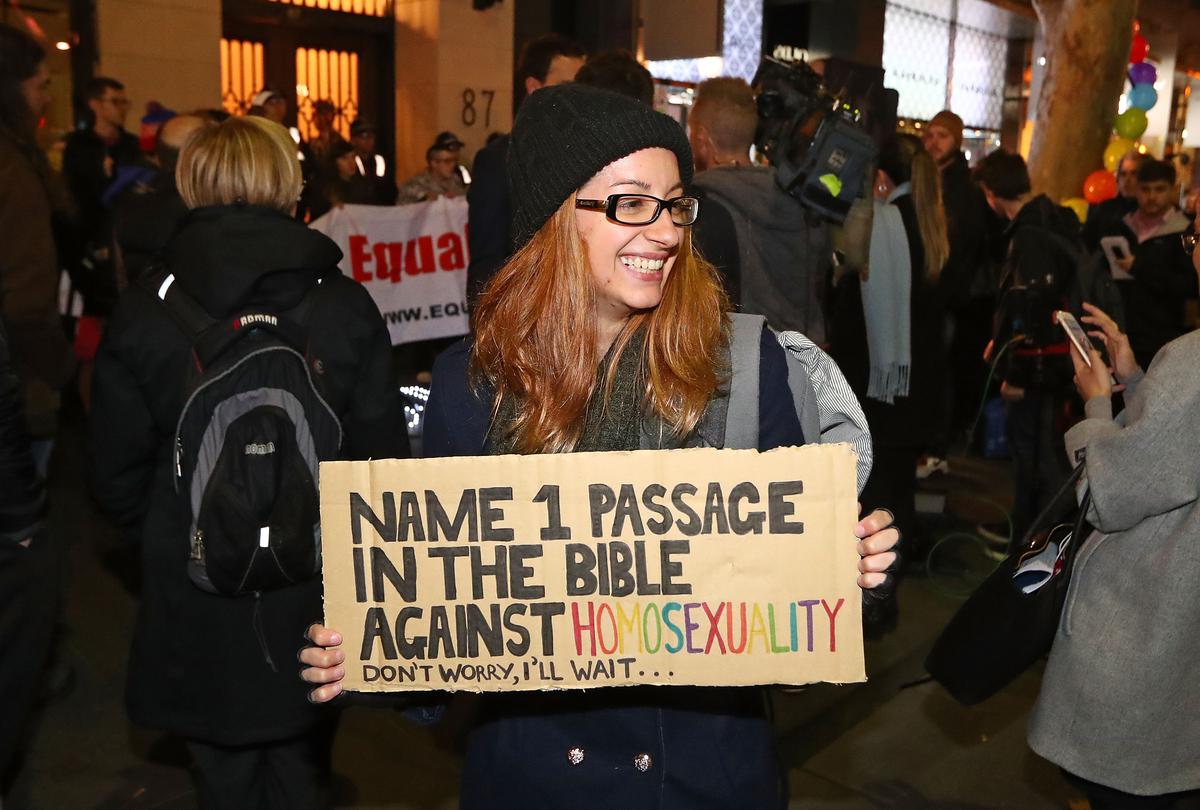
MELBOURNE, AUSTRALIA – JUNE 22: Protesters hold aloft placards outside of the Athenaeum club, where former Australian tennis player and Christian pastor Margaret Court is the keynote speaker at the second annual St Thomas More Liberal Party fundraising dinner, on June 22, 2017 in Melbourne, Australia. Former Australian tennis player Margaret Court drew criticism from marriage equality advocates in May following her comments on homosexuality.
MELBOURNE, AUSTRALIA – JUNE 22: Protesters hold aloft placards outside of the Athenaeum club, where former Australian tennis player and Christian pastor Margaret Court is the keynote speaker at the second annual St Thomas More Liberal Party fundraising dinner, on June 22, 2017 in Melbourne, Australia. Former Australian tennis player Margaret Court drew criticism from marriage equality advocates in May following her comments on homosexuality.
However, she has ‘courted’ controversy (pardon the pun) as early as 1970 when she seemed to praise the policy of racial segregation in apartheid South Africa. “South Africans have this thing better organised than any other country, particularly America,” she said. “I love South Africa. I’ll go back there any time.”
In 1990, Navratilova was the target of her comments when she said, “A great player but I’d like someone at the top who the younger players can look up to. It’s very sad for children to be exposed to homosexuality. Martina is a nice person. Her life has just gone astray.”
ALSO READ: ATP Rankings: Djokovic returns to No. 1 spot after US Open title, Alcaraz slips to second
In 2013, she wrote a letter to a newspaper, expressing disappointment on the birth of Australian tennis player Casey Dellacqua’s child in a same-sex relationship
In 2017, when the Australian government was working towards legalising same-sex marriages, Court, in an interview to 20Twenty Vision Christian Radio spoke of how tennis is “full of lesbians” and how transgender children were the “work of the devil.”
A few years later, Court sparked more drama when she penned an open-letter to Qantas, refusing to fly with the airline because of its support for same-sex marriage. In 2019, she directed her criticism at trans athletes and children in a sermon at the Pentecostal church in Perth, where she preaches.
“Because we are living in a season.. even that LGBT and the schools – it’s of the devil, it’s not of God,” Court told her congregation then.
“And you know with that LGBT, they’ll wish they never put the T on the end of it because, particularly in women’s sports, they’re going to have so many problems.”
Court has had multiple run-ins with Tennis Australia due to her views and there have been calls to get the Margaret Court Arena in Melbourne renamed, a call people like Billie Jean King, Martina Navratilova and John McEnroe have lent their voices to. McEnroe has even labelled her as ‘tennis’ crazy aunt.’
At the Australian Open in 2020, Court was honoured on the 50th anniversary of her winning the Calendar Grand Slam in 1970, but the ceremony at the Rod Laver Arena had very little fanfare.
During the same tournament, after a Legends exhibition match, McEnroe and Navratilova walked into the Margaret Court Arena holding a banner saying “Evonne Goolagong Arena,” asking for the stadium to be renamed after the seven-time Grand Slam winner.
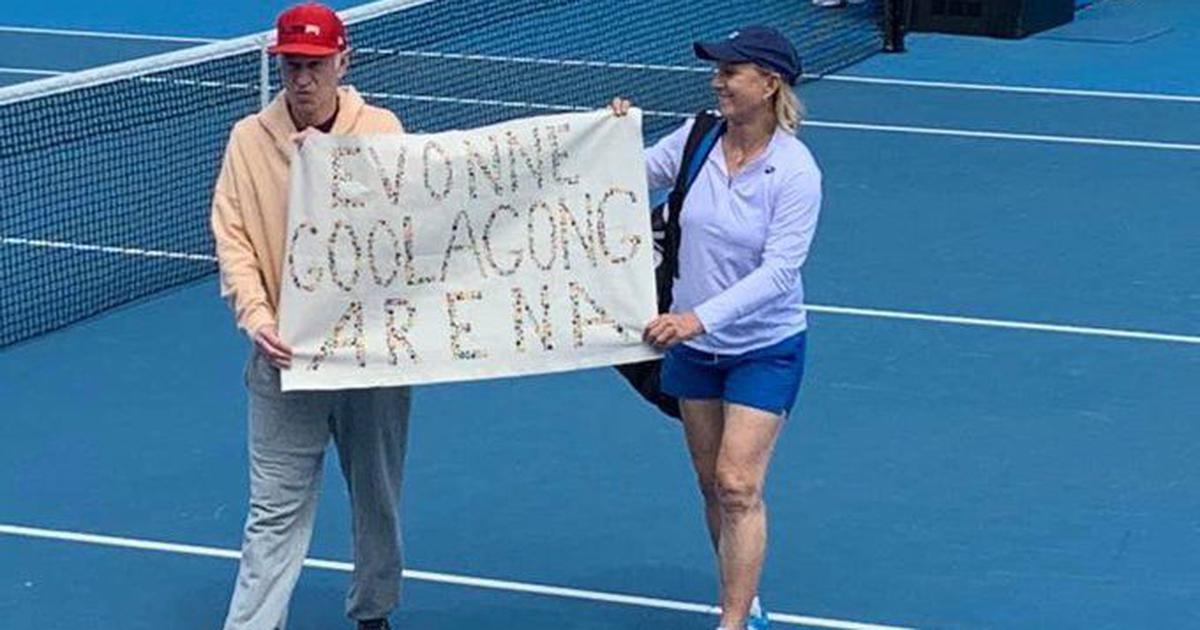
In 2020, McEnroe directed a message to Serena Williams, who was then the closest to Court’s 24-Grand Slam tally, saying “Please win two more Grand Slams, so we can leave Margaret Court and her offensive views in the past where she belongs.”
Djokovic seems to have taken up the assignment, at least for the stat books.
